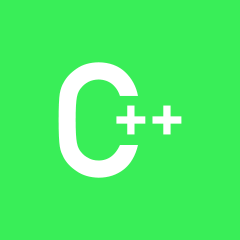如何修改传递给C中函数的指针?
如何修改传递给C中函数的指针?
void barPush(BarList * list,Bar * bar){
// if there is no move to add, then we are done
if (bar == NULL) return;//EMPTY_LIST;
// allocate space for the new node
BarList * newNode = malloc(sizeof(BarList));
// assign the right values
newNode->val = bar;
newNode->nextBar = list;
// and set list to be equal to the new head of the list
list = newNode; // This line works, but list only changes inside of this function}typedef struct Bar{
// this isn't too important} Bar;#define EMPTY_LIST NULLtypedef struct BarList{
Bar * val;
struct BarList * nextBar;} BarList;BarList * l;l = EMPTY_LIST;barPush(l,&b1); // b1 and b2 are just Bar'sbarPush(l,&b2);
 慕慕森
慕慕森浏览 684回答 3
3回答
-

函数式编程
如果要这样做,则需要传入指向指针的指针。void barPush(BarList ** list,Bar * bar){ if (list == NULL) return; // need to pass in the pointer to your pointer to your list. // if there is no move to add, then we are done if (bar == NULL) return; // allocate space for the new node BarList * newNode = malloc(sizeof(BarList)); // assign the right values newNode->val = bar; newNode->nextBar = *list; // and set the contents of the pointer to the pointer to the head of the list // (ie: the pointer the the head of the list) to the new node. *list = newNode; }然后像这样使用它:BarList * l;l = EMPTY_LIST;barPush(&l,&b1); // b1 and b2 are just Bar'sbarPush(&l,&b2);乔纳森·莱弗勒(JonathanLeffler)建议将评论中的新头目返回:BarList *barPush(BarList *list,Bar *bar){ // if there is no move to add, then we are done - return unmodified list. if (bar == NULL) return list; // allocate space for the new node BarList * newNode = malloc(sizeof(BarList)); // assign the right values newNode->val = bar; newNode->nextBar = list; // return the new head of the list. return newNode; }用法如下:BarList * l;l = EMPTY_LIST;l = barPush(l,&b1); // b1 and b2 are just Bar'sl = barPush(l,&b2); -

猛跑小猪
一般答案:传递指向要更改的内容的指针。在这种情况下,它将是指向要更改的指针。 -

幕布斯6054654
记住,在C中,一切都是通过值传递的。传入指向指针的指针,如下所示int myFunction(int** param1, int** param2) {// now I can change the ACTUAL pointer - kind of like passing a pointer by reference }
 随时随地看视频慕课网APP
随时随地看视频慕课网APP



 C++
C++
 C
C